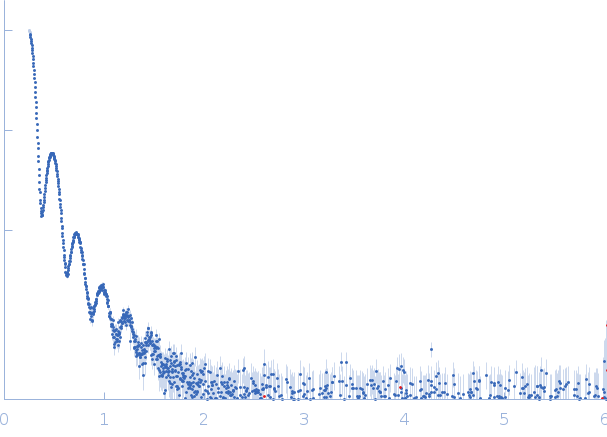|
Synchrotron SAXS data from solutions of Iron oxide nanoparticles (NP-N2) encapsulated into brome mosaic virus (BMV) in 50 mM M Tris-HCl, 50 mM NaCl, 50 mM KCl, 5 mM MgCl2, pH 4.5 were collected on the EMBL X33 beam line at DORIS III (DESY, Hamburg, Germany) using a Pilatus 1M-W detector at a sample-detector distance of 2.9 m and at a wavelength of λ = 0.15 nm (I(s) vs s, where s = 4πsinθ/λ, and 2θ is the scattering angle). One solute concentration of 0.50 mg/ml was measured at 10°C. Seven successive 15 second frames were collected. The data were normalized to the intensity of the transmitted beam and radially averaged; the scattering of the solvent-blank was subtracted.
The picture shows the transmission electron microscopy image of the nanoparticles. The data have been scaled for display purposes (original data available in the entry archive.)
|
|
 s, nm-1
s, nm-1
![Static model image Iron oxide nanoparticles (NP-N2) encapsulated into brome mosaic virus (BMV) OTHER [STATIC IMAGE] model](/media//pdb_file/SASDM29_fit1_model1.png)